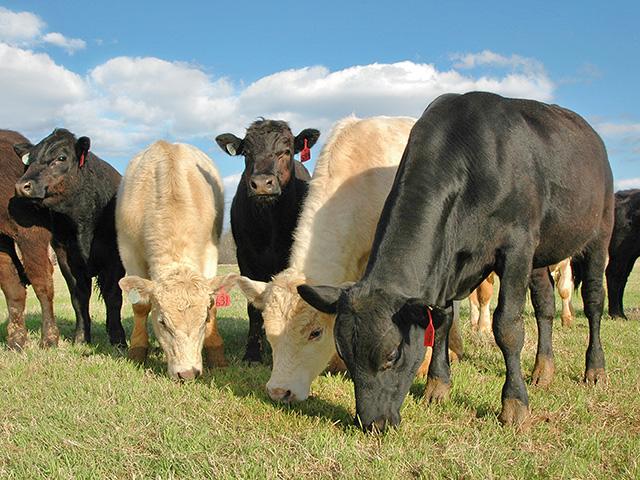Ask the Vet
Weaned Calf on Pasture Slobbering Excessively
READER QUESTION:
We raise cattle in Tennessee and put a weaned calf on pasture. It started slobbering and has a rough hair coat. We wormed the calf with pour-on Cydectin and gave it an injection of LA-300. Neither seemed to help. The calf does have a healthy appetite for grain and pasture. What do you recommend we do next?
DR. KEN MCMILLAN'S ANSWER:
This is a calf I think a veterinarian needs to examine. There are a lot of possible reasons for what you are seeing.
P[L1] D[0x0] M[300x250] OOP[F] ADUNIT[] T[]
Calves can slobber for things as simple as sticks and briars caught in the mouth or throat, or an abscessed tooth. Being in Tennessee, you might also consider toxic fescue as a cause, especially when we see a rough hair coat.
But there are a lot of things we can't rule out without an examination. Calf diphtheria or necrotic laryngitis should be considered. This is a bacterial infection of the throat that increases salivation.
Several vesicular diseases can also lead to irritation in the mouth including bluetongue, vesicular stomatitis (VS), foot and mouth disease (FMD), bovine virus diarrhea (BVD) and rabies.
Of all of these, FMD is the one we have to be the most concerned about. This is a very contagious and potentially devastating disease that can affect most cloven-hooved animals. It has been eradicated in the United States, and the USDA continues to work hard to prevent its reintroduction.
Unlike FMD, VS does exist in this country. It is a much milder disease than FMD, but it is visually indistinguishable from FMD. VS can affect cattle, horses and swine, and it is considered a zoonotic disease -- meaning humans can catch it too.
Rabies is another zoonotic disease we would need to consider in this case. I do not mean to scare anyone, but rabies in cattle is a real concern, and it should always be considered when cattle show strange behaviors including decreased appetite, severe itching, wobbliness, hypersalivation, choking, and aggression.
Cattle with long hair coats, and often described as "poor doers," may have persistent BVD infection (BVD-PI). These calves can develop a severe and often fatal form of BVD called mucosal disease. Vesicles and increased salivation, and diarrhea (often with blood) are common signs in this rare form of that disease.
Lastly, it's important to say that both VS and FMD are reportable diseases. That means veterinarians are required to contact their state veterinarian and USDA when they diagnose one of these. In some states, bluetongue is also reportable.
For these many reasons, it's important to have your herd veterinarian check out this calf and diagnose whatever is going on. This is a good time to stress that all livestock producers need to be on the lookout for any strange diseases in their animals.
**
Editor's Note: Please contact your veterinarian with questions pertaining to the health of your herd or other animals. Every operation is unique, and the information in this column does not pertain to all situations. This is not intended as medical advice but is purely for informational purposes.
Write Dr. Ken McMillan at Ask the Vet, 2204 Lakeshore Dr., Suite 415, Birmingham, AL 35209, or email vet@progressivefarmer.com.
(c) Copyright 2023 DTN, LLC. All rights reserved.






